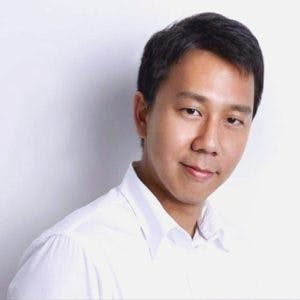 From Kenny Dalglish to Alex Ferguson, and most recently Jose Mourinho, every top-level football manager has been caught saying the words “no player is bigger than the club”. And while that might have been true previously, things have changed in today’s social media-driven world. When Cristiano Ronaldo can boast of 186 million followers on his Instagram, more than the total sum of his last three clubs combined – Juventus (32.9 million), Real Madrid (79.5 million), and Manchester United (31.9 million) – it’s clear that star players really are bigger than their clubs!
From Kenny Dalglish to Alex Ferguson, and most recently Jose Mourinho, every top-level football manager has been caught saying the words “no player is bigger than the club”. And while that might have been true previously, things have changed in today’s social media-driven world. When Cristiano Ronaldo can boast of 186 million followers on his Instagram, more than the total sum of his last three clubs combined – Juventus (32.9 million), Real Madrid (79.5 million), and Manchester United (31.9 million) – it’s clear that star players really are bigger than their clubs!
And advertisers have taken note, especially in Asia. The Portuguese football star is beloved here, and Singapore-based e-commerce business Shopee would have been well aware of what he could do for their brand when they brought him onboard as its brand ambassador, for an in-house marketing campaign that kicked off their ‘9.9 Super Shopping Day’. The poor man had to perform a Shopee variant on the popular ‘Baby Shark’ song and dance sequence – cheesy as heck, but the video still garnered 1.5 million video views on YouTube, and 26,000 social media reactions on their Facebook page within the first few weeks on release.
And it’s not just Ronaldo’s ilk that works on Asian fans – they love local heroes too. Spanish club Espanyol has certainly tapped on Chinese owner Chen Yansheng for his acumen and contacts, using Wu Lei to build a huge fanbase in China since his arrival at the club early this year. According to consulting company Kantar, 89 per cent of Chinese football fans have become Espanyol fans, and 11.5 per cent of LaLiga games viewed in Asia are Espanyol fixtures.
Diego Barnabas, the head of analysis at Kantar says: “Wu Lei is a winning bet because he exemplifies the balance between the sporting value of the player and the commercial benefits to his brand. It’s logical to think that next season we’ll see more commercial development for the club and it wouldn’t be strange to see a list of sponsors arrive based on how attractive Wu Lei is for the Chinese market.”
Espanyol didn’t even need to wait for the 2018-19 La Liga season to end, with the club signing an agreement with China Mobile to show reserve team games featuring Wu Lei almost as soon as he joined the club. Apart from knocking in the goals for the club – Wu Lei scored the all-important goal that allowed Espanyol to qualify for the Europa League and followed that by netting Espanyol’s quickest-ever goal in European competition in 2019-20 – he was also grabbing the endorsements, picking up Chinese companies like translation platform iFlytek and content platform LD Sports.
Outside of football, basketball has also seen the idol strategy work in Asia. While the NBA will still be feeling shell-shocked after getting hammered in China over the Morey Tweets, the one consolation it has from its recent Global Games pre-season in Asia is the resurgent interest in their league from Japan, thanks to the Washington Wizards drafting 21-year-old Rui Hachimura in June. While basketball was hugely popular in Japan during the era of Michael Jordan and the Chicago Bulls, in the last few decades the game has waned in popularity, but the Japanese have taken hugely to Hachimura, despite his mixed parentage, which clearly highlights Japan’s shifting mindset toward its mixed-race minority.
The Wizards have left no stone unturned in making sure Hachimura does for their team what Yao Ming did for the Houston Rockets in China, launching a Japanese-language team site and a Japanese Twitter feed, as well as a bilingual correspondent who will host a targeted podcast for Japanese listeners 7,000 miles away.
In Southeast Asia, Hugo Boss is clearly snapping the new crop of Asian Instagram-active sports stars. After nabbing Singapore’s Olympic champion swimmer Joseph Schooling, they’ve signed Philippine golfer Miguel Tabuena, and are in the process of signing other stars in Malaysia, Indonesia and Myanmar, ahead of the Southeast Asian Games hosted by the Philippines this November. In fact, Hugo Boss Southeast Asia’s managing director Steven Lam said that getting Schooling on board in 2018 was actually a “hard sell” to his management” and a “stroke of luck”! But now that the sports idol strategy is clearly working in Asia, Lam says he firmly believes that Southeast Asia is going to be “the next wave”.
With belt-tightening anticipated for most marketers in Asia due to poor economic forecasts in 2020, it won’t be a surprise to see marketing budgets moving away from league and club sponsorships and going right smack into the pockets of players!